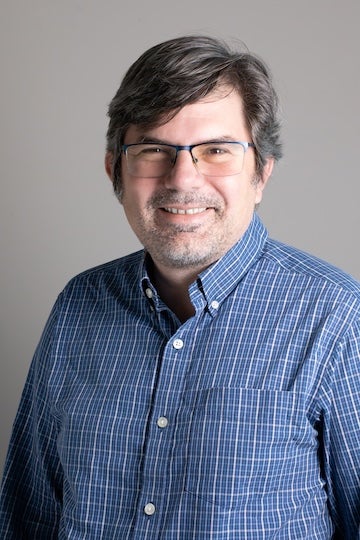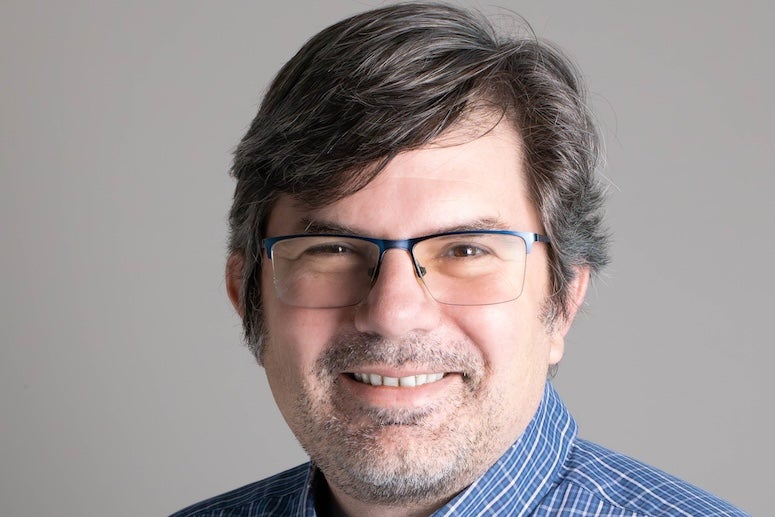Jonathan Ajo-Franklin, a leading mind in applied geophysics and Trustee Professor of Earth, Environmental and Planetary Sciences at Rice University, has been awarded the 2025 Reginald Fessenden Award by the Society of Exploration Geophysicists. The honor recognizes a “specific technical contribution to exploration geophysics” that represents a major scientific or conceptual advancement — a distinction that places Ajo-Franklin among the most influential innovators in the field.
Ajo-Franklin is internationally recognized for his groundbreaking work on distributed acoustic sensing (DAS), a technology that uses existing fiber optic cables — many originally laid for telecommunications — as dense seismic sensor networks. His early studies proved that DAS could dramatically enhance the resolution and scalability of subsurface imaging, opening up new applications in earthquake monitoring, geothermal energy, carbon sequestration and environmental remediation.

“Receiving this award is a tremendous honor,” Ajo-Franklin said. “I’ve been fortunate to work with many brilliant students and postdoctoral fellows, creative collaborators and forward-looking institutions that supported high-risk, high-reward research. The promise of DAS lies in its ability to turn existing fiber infrastructure into powerful scientific tools, and I’m excited about what we’ve been able to achieve and what’s still to come.”
Ajo-Franklin’s research has transformed how scientists study geophysical processes critical to life on a changing planet. His team was among the first to demonstrate that so-called “dark fiber” — unused strands of telecom cable — could be repurposed for high-resolution seismic data collection. These insights have since fueled new applications in permafrost monitoring, induced seismicity monitoring in geothermal fields and groundwater contamination tracking. His leadership in borehole DAS for geologic carbon sequestration and geothermal energy has advanced real-time monitoring techniques that are safer, more cost-effective and less invasive than traditional approaches.
“Jonathan’s work exemplifies the kind of visionary science that bridges disciplines and creates global impact,” said Thomas Killian, dean of Rice’s Wiess School of Natural Sciences. “In a warming world grappling with the need for sustainable energy, his research directly informs how we manage natural resources, store carbon and protect communities from environmental hazards. This is a career-defining honor, and it’s richly deserved.”
Ajo-Franklin holds a doctorate and master’s degree in geophysics from Stanford University, where he studied under seismic imaging expert Jerry M. Harris, and a bachelor’s degree in computer science and history from Rice. Before returning to Rice in 2019 as a professor, he spent more than a decade at Lawrence Berkeley National Laboratory, where he led multidisciplinary teams in subsurface monitoring and energy systems research. He continues to serve as a visiting faculty scientist at Berkeley Lab.
His work has been published in top-tier journals, and he has been featured in outlets such as Scientific American, Science and Fast Company. His research collaborations span academic institutions, government agencies and industry partners working to improve resilience and sustainability in energy infrastructure.
In recent years, Ajo-Franklin has been a vocal advocate for expanding access to next-generation sensing tools, especially in regions vulnerable to natural hazards and water stress. By making DAS more accessible and integrable with existing infrastructure, he envisions a future where fiber-based seismic sensing becomes a foundational tool for global climate resilience.
“Geophysics isn’t just about exploring the Earth anymore — it’s about protecting it,” Ajo-Franklin said. “Whether we’re talking about tracking carbon deep underground or preventing groundwater contamination, the ability to observe the subsurface in real time is essential. DAS has moved from the lab to the real world, and I’m incredibly proud to be part of that journey.”

